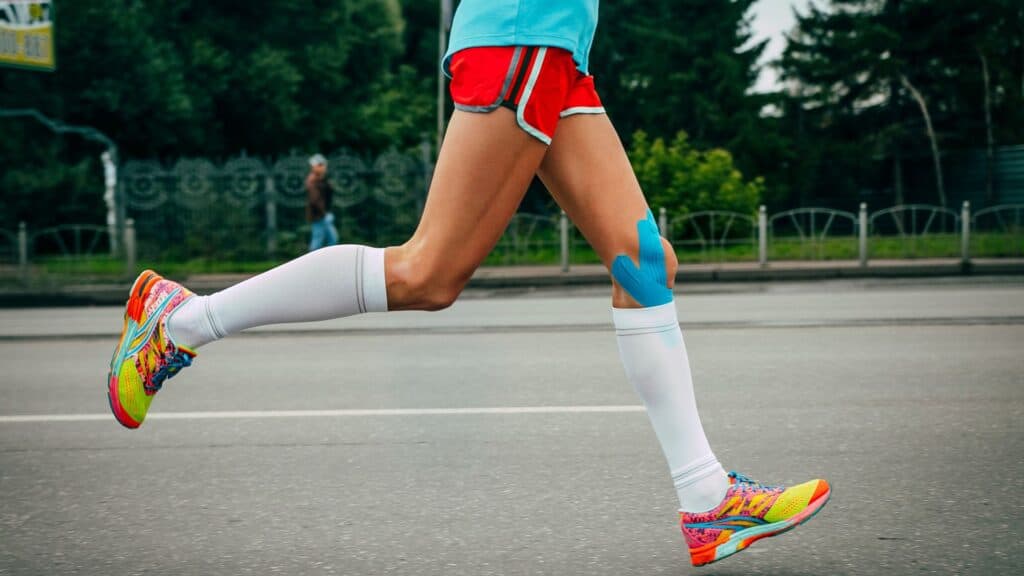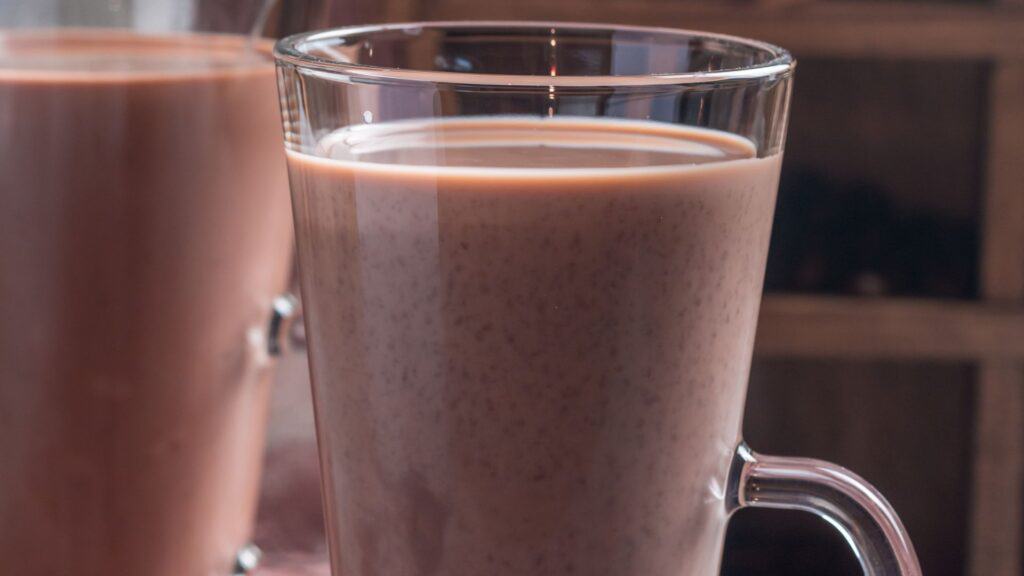Now that the race is over, it’s important to focus on post-marathon recovery.
Rest is key to letting your body recover properly and preventing injury.
How much rest is enough before you run your next marathon? The answer is not one-size-fits-all as it varies from person to person and how their body responds after a race.
In this post, we will discuss post-marathon recovery strategies and how much rest your body needs to recover effectively.
Let’s dive right in…

Why Is It So Important To Recover After Running A Marathon
Running a marathon is a remarkable achievement that demonstrates an athlete’s endurance and perseverance. It requires relentless training, dedication, and determination to cross that finish line.
But, the journey doesn’t end after the race. What happens next is equally significant – the recovery phase.
To excel and avoid lasting injuries, it is absolutely essential to prioritize your recovery. Let’s look at why recovery is crucial for your overall physical and mental health.
Marathon Running Causes Physical Muscle Damage
While running a marathon may seem like the ultimate physical achievement, it can also cause significant damage to your body. The repeated stress on your muscles, bones, and joints can lead to soreness, inflammation, and even injury.
One of the most common issues experienced by marathon runners is muscle damage, manifested as muscle pain, stiffness, and weakness.
During a marathon, your muscles undergo intense stress and breakdown, causing tiny micro-tears in the muscle fibres. These tears can lead to muscle soreness and inflammation, which can last for days or even weeks.
The Mental Effort Exerted During A Marathon Is Substantial
The mental effort required to run a marathon can also be substantial. The long hours spent training and constantly pushing yourself to go further and faster can take a toll on your psyche.
Running a marathon is as much a mental challenge as it is a physical one, and the effort can leave you feeling drained and exhausted. It is essential to give your mind the time and space it needs to recover as well.
Mental recovery can take many different forms, including spending time with friends and family, engaging in hobbies, or taking a relaxing vacation.
For Physical And Mental Well-Being
To bounce back effectively after a marathon, it’s crucial to allow your body sufficient time to recover. This involves taking a break, maintaining a proper diet, staying hydrated, and incorporating gentle exercises that support muscle recovery.
It’s important to note that this varies from one runner to another, but as a general guideline, we suggest a two-week break post-marathon before gradually reintroducing any form of physical activity. The specific duration might adjust based on your individual fitness level.
By taking the time to recover and heal properly, you’ll be better equipped for next marathon training and races.
While running a marathon is undoubtedly an impressive feat, it can come with significant physical and mental tolls that require proper care and attention.
In addition to the physical damage that marathon running can cause, it’s essential to consider the mental exertion and potential cognitive effects.
Taking time to recover, both physically and mentally, can help prevent injury and burnout and set you up for success in future races.
How Do I Maximize My Recovery After Running A Marathon?
As marathoners, we put in months of training and preparation to get to the start line, and even more effort to finish the race.
After crossing the finish line, it’s easy to just want to collapse and relish in the achievement. However, taking care of our bodies after the race is just as important as the training that comes before it.
Now, let’s look at some ways to maximize your post-marathon recovery to reduce soreness and avoid injury so you can get back to doing what you love soon.
Immediate Post-Race Actions (First 24 Hours)
Replenish Carbohydrates And Protein (In A 4:1 Ratio)
Right after completing your marathon, it’s important to nourish and help your body recover. The key is to focus on foods that provide a combination of carbohydrates and protein.

Carbohydrate-rich options like potatoes, rice, or pasta will replenish the energy stored in your body, while protein sources such as meat, eggs, or dairy will help repair and rebuild your tired muscles.
To strike the perfect balance, aim for a ratio of four-part carbohydrates to one-part protein. In simpler terms, for every serving of protein, fill up on four servings of carbohydrates.
By following this approach, you will give your body the fuel it needs to replace the energy (carbs) and repair the muscles (protein) that were depleted during your marathon.
Remember, proper nutrition is essential for a speedy and effective recovery.
Be Cautious With Alcohol Consumption
If you feel like celebrating after your marathon with some drinks, that’s okay, but be careful.
Too much alcohol can slow down the process of muscle recovery. It might make you feel worse, not just because of a hangover but also because it can affect how your muscles heal.
While celebrating with a moderate amount, like one beer, may not have a detrimental effect on recovery, having two or more beers can act as a diuretic. This means it may increase the production of urine, leading to dehydration.
To offset the potential dehydrating effects of alcohol, it’s advised to ensure sufficient water intake. Drinking lots of water can help maintain hydration levels and support the recovery process.
So, it’s a good idea to be mindful of how much alcohol you have to make sure your muscles can recover properly.
Keep Moving to Prevent Stiffness
After you finish your marathon, your body might feel stiff and sore. It’s important to keep moving a little bit instead of sitting or lying down for a long time.
Moving around gently, even if it’s really slow, helps your muscles recover better.
If you sit or lie down for too long, it might be harder to get back up, so try to keep yourself moving a bit to help your body feel better.
Recovery Modalities You Can Use
Ice Baths
As you already know by now, your muscles might be sore and inflamed after a marathon due to the physical exertion.
An ice bath is a recovery method where you sit in cold water for a short period, and it can help reduce muscle soreness and inflammation.
Take ice baths, particularly within the first 24 hours after your race, as the cold temperature may constrict blood vessels. This could help in minimizing muscle damage and promoting recovery.
Massage, Massage Guns, and Foam Rolling
- Massages involve applying pressure to muscles, and they can be beneficial for relaxing tight muscles and improving blood circulation.
- Massage guns provide percussive therapy, similar to a deep tissue massage, aiding in muscle recovery.
- Foam rolling, also known as self-myofascial release, involves using a foam roller to massage and release tension in muscles.
- These methods are effective in reducing muscle tightness, promoting flexibility, and enhancing overall recovery after a demanding race like a marathon.
Cryotherapy involves exposing the body to extremely cold temperatures, often using ice or special chambers.
While cryotherapy can be beneficial for recovery by reducing inflammation, it should be avoided during regular training. It may inhibit adaptation, which means it could interfere with the body’s ability to positively respond and improve during regular training sessions.
In simpler terms, cryotherapy is recommended more for recovery periods between intense activities, like a marathon, than during the ongoing training routine.
How Many Rest Days Should You Take After A Marathon?
Deciding when to run again after a marathon isn’t a one-size-fits-all answer. It depends on various factors like age, gender, effort level during the race, fitness, overall health, nutrition, hydration, and recovery plan.
The recovery timeline can even vary for the same runner after different races. While it’s highly individualized, here’s a general guide for the first few weeks after a marathon.
Post-Race Week One
After completing a marathon, it’s important to give your body a break. The first week is a recovery week, meaning no structured training or running to allow your muscles and joints to recuperate.
Concentrate on eating nutritious foods that provide a balance of carbohydrates, proteins, and vitamins.
Stay hydrated by drinking plenty of water to support your overall recovery. Prioritize getting enough rest and sleep, as this helps boost the immune system and aids in the recovery process.
Post-Race Week Two
Extend the no-training period into the second week to give your body additional time to regenerate. This prolonged rest helps ensure that your muscles recover adequately before returning to regular training.
While still avoiding running, you can engage in light cross-training activities. Cycling or swimming are great options. They give you a good workout without the impact of running, promoting active recovery.
It’s important to keep the intensity low to prevent putting too much stress on your body.
If you feel the need for additional recovery, you can continue using recovery strategies like ice baths or massages. These methods can assist in reducing muscle soreness and promoting recovery during this phase.
Post-Race Week Three and Onwards
Start by adding light strength training to rebuild muscle strength without stressing your body too much.
Slowly reintroduce running with short, easy-paced runs. Avoid high-intensity or interval workouts at first to prevent overexertion.
Over the next four weeks, gradually increase both distance and time spent running. Stick to easy-paced, low-intensity runs to build up volume without pushing too hard. Depending on your individual running level, it’s possible to resume full training around week 4.
This step-by-step approach lets your body adapt and reduces the risk of overtraining as you ease back into your running routine.

Recovery for Performance vs. Participation
Recovery strategies may vary depending on whether you have performance-oriented or participation-based goals for your running. It’s important to recognize that how you recover can greatly impact your overall performance and progress.
For those aiming to perform at their best, recovery strategies should be more structured and focused. This may include activities such as active recovery exercises, physical therapy, and targeted stretching routines.
On the other hand, if your running goals are more participation-based, you may take a more relaxed approach to recovery. This could involve gentle stretching, foam rolling, and engaging in other low-impact activities to promote muscle relaxation and reduce post-run soreness.
It’s worth noting that even elite runners, who are at the top of their sport, recognize the importance of taking several weeks off from running after completing a marathon.
This extended recovery period allows them to recharge both physically and mentally, ensuring they can maintain their performance levels in the long run.
When considering your personal running goals, take the time to assess your recovery needs. Every runner is different, and tailoring your recovery approach to meet your specific needs can help you become the best runner you can be.
Don’t forget that mental recovery is just as important as physical recovery. Taking the time to rest, relax, and mentally recharge before jumping back into training is crucial for long-term success.
Related: A Practical Guide To Running Recovery
Post-marathon recovery is crucial, and how much rest you need is subjective to your body’s response. It’s important to listen to your body and let it take the time it needs to heal.
Refuelling your body, seeking professional help, and returning to training gradually all facilitate quality recovery. With these strategies, you’ll be on your way back to running in no time. Happy recovering!



Comments are closed.